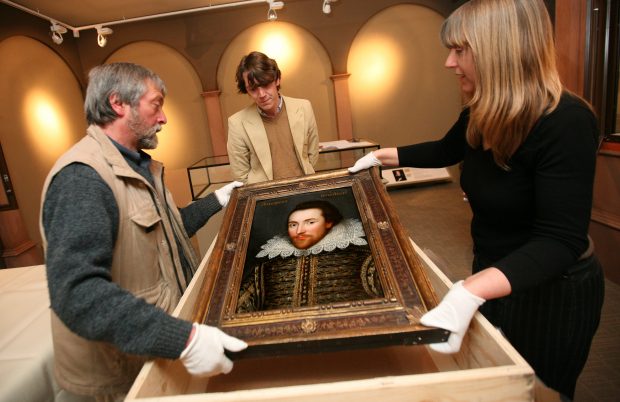Back in 2007, Derek Jacobi and Mark Rylance delivered a petition, pompously titled ‘Declaration of Reasonable Doubt’, to that august seat of learning, Brunel University. The petition was the continuation, and perhaps culmination, of centuries of debate over what is known as the ‘authorship question’, an obsessive pursuit – undertaken almost entirely outside of academia – of the real author of Shakespeare’s plays.
For conservative folk, that answer has always been, simply, Shakespeare, but for the clear-sighted geniuses of the Shakespeare Authorship Coalition, the answer has ranged from Edward de Vere to Sir Francis Bacon. Despite long being seen as the birther movement of literature, the authorship questioners have this week won their greatest victory: Oxford University Press has announced that it will be offering Christopher Marlowe a co-writer credit on Shakespeare’s Henry VI, Parts I, II and III.
It has long been established that Shakespeare’s works had regular input from others. That much is uncontentious – as is the fact that there is a singular literary voice that runs through this mystery writer’s opus. The vagueness surrounding what little we know of Shakespeare’s life has caused many serious critics (and countless more actors) to become bogged down in confusion over the Bard’s genesis. And so the authorship question began, and now, in 2016, an answer of sorts has been offered.
So why Christopher Marlowe? The short answer, I suspect, is that of all the reasonable candidates, he is the only one capable of selling books or tickets. There’s always been a seductive virility to the de Vere claim – a brilliant Earl hamstrung by his aristocratic birth – but the Marlowe camp has forever been the most ambitious. The idea that the writer of Doctor Faustus, Tamburlaine and Edward II should have shared a quill with Shakespeare is a confluence of literary greats too good to be true. And it probably isn’t: the Marlovian theory tends to fall down on the fact that Marlowe died in 1593, at which time ‘Shakespeare’ had only written a handful of history plays.
Yet, Oxford University Press have decided that there is compelling evidence of Marlowe having had a hand in Henry VI, Parts I, II and III. This idea is lent credibility by the fact that Marlowe was not deceased when these plays were being written (not being dead is a useful tip for all aspirant playwrights) between 1588 and 1591. Other than that, there is little to go on: Gary Taylor, a professor at Florida State University of all places, and editor of this new edition, stated simply that ‘We have been able to verify Marlowe’s presence in those three plays strongly and clearly enough.’ No arguing with that.
Taylor also went on to say: ‘What is Shakespeare famous for? Writing dialogue – interactions between two people. You would expect in his life there would be dialogue with other people.’ This is a claim of such facile indecency that it would be rejected from an undergraduate essay. In reality, the only leg the Marlowe truthers have to stand on is that computer-based textual analysis tools have progressed a lot in recent years, and these programmes are likely to bring to light patterns of speech that suggest collaboration or revision to the central author’s text. The idea that these will be able to pin that co-authorship to Marlowe – a writer with a relatively slight body of work to draw data from – is rather fanciful.
Which causes to me to question exactly why Oxford University Press has gone out on a limb with this co-authorship credit. This New Oxford Shakespeare edition will also, for the first time in a complete works, contain Arden of Faversham which has long been used as a literary football, kicked between the sexier Elizabethan writers like Kyd, Marlowe and Shakespeare. In including it, OUP have shown that they are willing to indulge an iconoclastic streak, which will excite the press and social media more than the world of Shakespeare academia. Every new edition of the complete works has to do something different, but this 2016 focus on the authorship question panders to the lowest form of Shakespeare populism.
And it can be no coincidence that the Marlowe attribution has been stuck on Henry VI, Parts I, II and III. These plays, loosely charting the Wars of the Roses, are among Shakespeare’s few misfires, and by far the least intellectually consequential of the plays written while Marlowe still had a pulse. The cynic in me can’t help but suspect that OUP have gone for a big headline – MARLOWE WROTE SHAKESPEARE, READ MORE INSIDE – but attached to a play without academic or theatrical reputation. As such, they will avoid the most severe hand-wringing from the academic establishment, while also managing to shift copies of this new edition that, for better or worse, we’re all talking about.







Comments